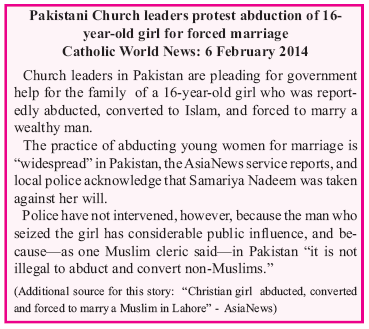Peace-in-our-time
Babette Francis
 Professor William Kilpatrick, author of "Christianity, Islam
and Atheism: The Struggle for the Soul of the West"
commented that "Tony Blankley in his 2005 book, The
West's Last Chance, noted that there is a natural human
instinct to forget the distant past and to assume that the
more or less benign trends of the recent past will continue.
Nevertheless, observed Blankley, shocking divergences from
the status quo have defined the path of history. But these
divergences are seldom anticipated. For example, Londoners
in the summer of 1939, my parents included, never expected
that forty thousand of their fellow Londoners would
soon lie dead in the streets from German bombing."
Professor William Kilpatrick, author of "Christianity, Islam
and Atheism: The Struggle for the Soul of the West"
commented that "Tony Blankley in his 2005 book, The
West's Last Chance, noted that there is a natural human
instinct to forget the distant past and to assume that the
more or less benign trends of the recent past will continue.
Nevertheless, observed Blankley, shocking divergences from
the status quo have defined the path of history. But these
divergences are seldom anticipated. For example, Londoners
in the summer of 1939, my parents included, never expected
that forty thousand of their fellow Londoners would
soon lie dead in the streets from German bombing."
The West's Last Chance is about the danger that Islamization poses to the West. Blankley's book warns that the citizens of the West face a threat similar to that faced by Londoners in 1939 and are handicapped by a similar inability to recognize the gravity of the threat. The evidence for Islamization in Europe that Blankley pointed to in 2005 is far more abundant than it was when he wrote. But rather than go over facts that have been chronicled in detail in numerous recent books and articles, we should ask why Westerners have so much difficulty in recognizing what should be obvious.
Kilpatrick writes that "part of the difficulty lies in the natural tendency to 'forget the distant past' and assume that the status quo will continue. In our times this tendency is exacerbated by a greater than usual disconnect from the past. To a generation hooked on the latest sensation 9/11 already seems like ancient history. So does the Beslan atrocity, the London tube bombing, and the month-long rioting in three hundred French cities that occurred in 2005. The Boston Marathon bombing happened less than a year ago but seems destined to quickly fade from memory since it was immediately characterized as a 'one-off'—an isolated event perpetrated by a couple of self-radicalized lone wolves. It joins a long list of similar 'one-off' incidents that include the Buffalo beheading, the 'underwear bombers' failed attempt to bring down a jetliner, and Faisal Shazhad's attempt to blow up Times Square".
It's all the more difficult to remember the past when the media, the government, and other censors impose an unofficial ban on noticing a pattern to certain events. You have no doubt seen almost daily reports of suicide bombers and church-burners. The Religion of Peace.com website keeps track of all the deadly Islamic terrorist attacks since 9/11. As of September 11, 2013 they had documented 21,583. Earlier generations, less encumbered by political correctness, would have been able to discern a pattern in that, and they would have discerned it long before the number reached five figures. We, however, have been conditioned to view such incidents as disconnected events.It would be "Islamophobic" to draw conclusions based on such "scattered" evidence. Today's good citizen can be counted on not to jump to conclusions. Indeed, he can be counted on to look at acres of evidence and not see a thing.
